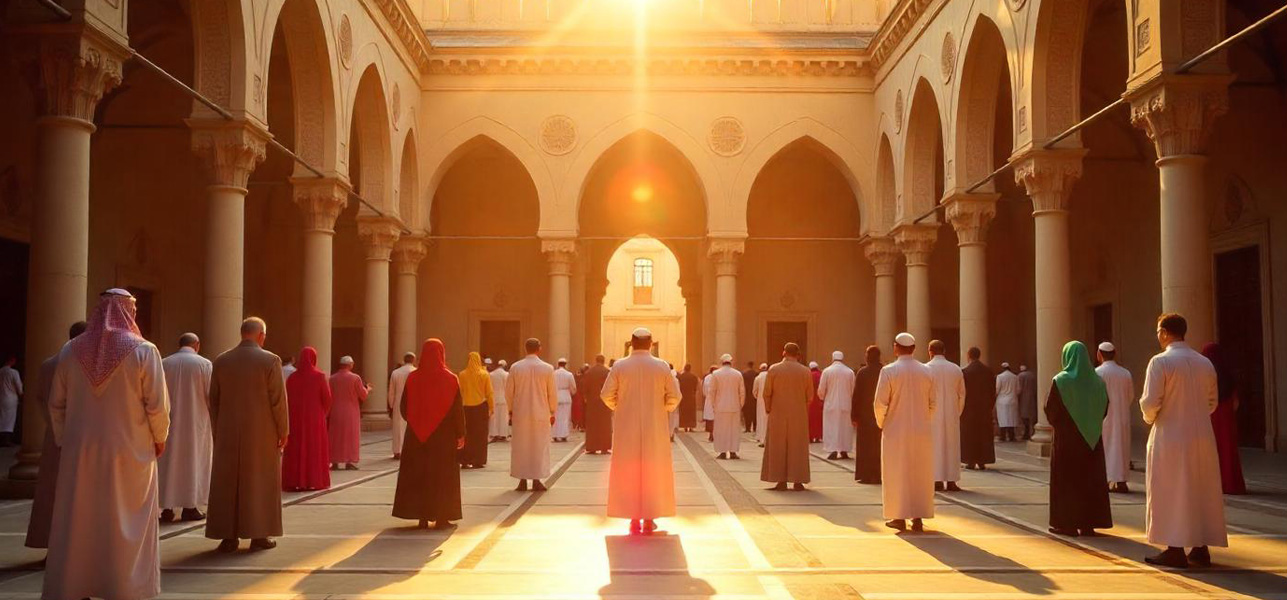Navigating Tradition and Modernity in Light of the Quran and Sunnah
Introduction: The Challenge of Relevance
As the final divine revelation to humanity, Islam asserts its universality—providing guidance for all times and places. However, Muslims today grapple with a paradox: How do we remain faithful to the Quran and Sunnah while addressing 21st-century challenges unimaginable in 7th-century Arabia? From artificial intelligence to climate change, globalization to gender equity, the modern world demands a faith that is both rooted and responsive.
I’ll try to explore in this article how Islam’s timeless principles guide us without tethering us to the past and why both scholars and laypeople must engage with revelation critically, compassionately, and creatively.
- The Essence of Islamic Teachings: Simplicity and Mercy
The Quran and Sunnah emphasize ease, flexibility, and intent over rigid formalism. Allah says:
“God intends for you ease and does not intend for you hardship” (Quran 2:185).
The Prophet ﷺ encapsulated this ethos:
“Religion is very easy, and whoever overburdens themselves will not endure it. So be moderate, seek closeness [to Allah], and give glad tidings!” (Bukhari).
Key Principles:
- Focus on Objectives: The Quran prioritizes justice, mercy, and welfare (maslaha) over ritual perfection.
- Concessions for Hardship: Travelers shorten prayers; the sick break fasts; the poor receive zakat.
- Rejection of Excess: The Prophet ﷺ condemned unnecessary strictness:
“Destroyed are those who insist on hardship!” (Muslim)
- Classical Scholarship: Foundation, Not Cage
Classical scholars like al-Shāfiʿī and Ibn Taymiyyah laid the groundwork for Islamic jurisprudence (fiqh). Their works remain vital for understanding:
- Linguistic Nuance: Classical Arabic’s richness.
- Historical Context: The sabab al-nuzūl (reasons for revelation).
- Consensus (Ijmaʿ): Early agreements on core rulings.
However, classical texts are not divine. The Quran itself warns against blind imitation:
“When it is said to them, ‘Follow what Allah has revealed,’ they say, ‘No! We follow what we found our forefathers practicing’” (Quran 2:170).
Example: Medieval scholars debated whether coffee was halal. Today, lab-grown meat and cryptocurrency present new ethical dilemmas requiring nuanced ijtihād (scholarly reasoning).
While classical scholarship provides an indispensable foundation, the Quran cautions against blind imitation (2:170). Thus, Islamic thought must remain dynamic and proactive, addressing the complexities of modernity with fresh ijtihād.
III. The Urgency of Contemporary Understanding
Allah describes the Quran as:
“A guidance for all humanity” (Quran 2:185).
To fulfill this universality, Islam must speak to modern challenges:
- New Frontiers in Ethics
- Bioethics: IVF, euthanasia, genetic engineering.
- Digital Age: AI ethics, social media’s impact on mental health.
- Environment: Climate change as a test of stewardship (Quran 2:30).
- Renewal (Tajdīd) in Scholarship
The Prophet ﷺ said: “Allah will send to this Ummah, at the head of every century, those who will renew its religion” (Abu Dawud).
Modern mujtahids (scholars) must:
- Master Classical Tools: Arabic, hadith criticism, maqāṣid al-sharīʿah (objectives of Islamic law).
- Engage Modern Realities: Collaborate with scientists, economists, and psychologists.
Successful Models:
- Sheikh Abdullah bin Bayyah: Addresses space travel and AI through the lens of maslaha.
- Dr. Ingrid Mattson: Bridges gender studies and Islamic theology.
- Mufti Menk: Simplifies rulings for youth via social media.
- Beyond Imitation: Understanding the Why of the Sunnah
The Prophet ﷺ said: “Whoever revives a Sunnah of mine that has been forgotten after I am gone will have a reward equivalent to those who follow it” (Tirmidhi).
But “reviving the Sunnah” requires discerning between:
- Timeless Principles
- Worship: Prayer, fasting, charity.
- Morality: Honesty, kindness, justice.
- Contextual Actions
- Cultural Practices: The Prophet ﷺ wore a turban and a thoub, but modesty transcends specific attire. Today, different clothing styles can embody the essence of modesty, and choosing not to wear traditional garments does not contradict the Sunnah.
- Historical Solutions: Using camel transport in the past versus modern transportation methods today.
Example: The Quran regulated slavery but prioritized emancipation. Today, the principle of human dignity (Quran 17:70) demands abolition.
- Avoiding Pitfalls: Literalism and Over-Innovation
While Islam discourages both rigid literalism and reckless innovation, it offers a balanced approach—one that prioritizes principles over particulars while ensuring adaptability across generations.
- The Danger of Over-Literalness
- Misplaced Priorities: Rejecting vaccines because the Prophet ﷺ used cupping.
- Cultural Baggage: Confusing Arab customs (e.g., dowry practices) with divine law.
- The Risk of Over-Innovation
- Diluting Core Values: Adjusting Islamic rulings on modesty or dietary laws to conform to fleeting cultural trends rather than genuine scholarly reasoning.
- Cherry-Picking Texts: Overlooking clear guidelines on ethical business practices, such as fairness in trade and transparency, in favor of financial loopholes that prioritize profit over justice
The Quran condemns:
“Those who divide their religion into sects” (Quran 30:32),
urging unity on essentials while allowing flexibility in secondary matters.
- A Path Forward: Principles for Modern Muslims
- Prioritize the Essentials: Master the Quran and authentic Sunnah before diving into scholarly debates.
- Seek Balanced Scholarship: Follow scholars who blend classical knowledge with modern insight.
- Embrace Ijtihād: Encourage creative, principled solutions to new challenges.
- Trust Allah’s Mercy:
“Allah has pardoned for my Ummah their mistakes, forgetfulness, and what they are forced to do” (Ibn Mājah).
Conclusion: A Living Faith for All Times
Islam is not a relic of the past but a roadmap for human flourishing. The Prophet ﷺ modeled a faith rooted in timeless principles yet adaptable to his era—whether drafting the first social contract in Medina, negotiating with diverse tribes, or reforming entrenched societal norms.
Today, Muslims must do the same: honoring tradition without idolizing it, embracing progress without compromising core values, and upholding Islam’s eternal role as:
“A mercy to the worlds” (Quran 21:107).
As Ibn al-Qayyim wisely stated:
“The Shariah is founded on wisdom and welfare for the worshipers in this life and the hereafter. It is all justice, mercy, benefit, and wisdom. Every ruling that replaces justice with tyranny, mercy with cruelty, benefit with harm, and wisdom with folly has nothing to do with the Shariah.”
